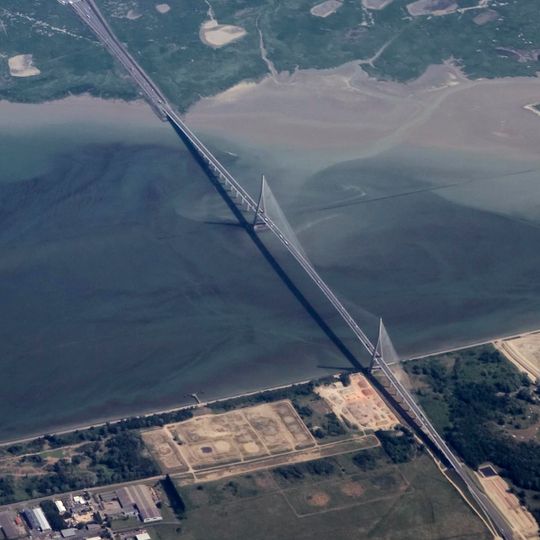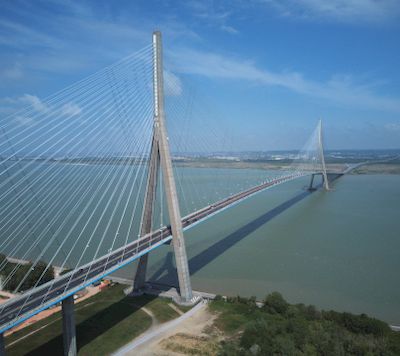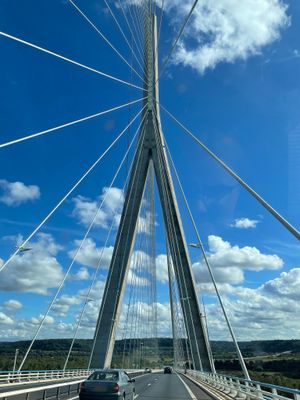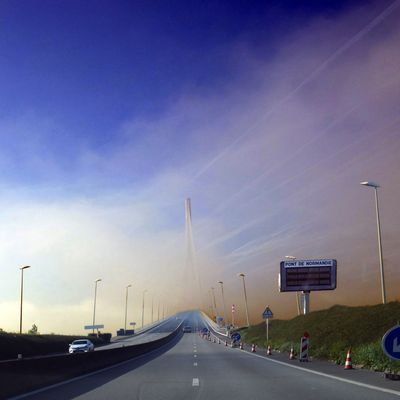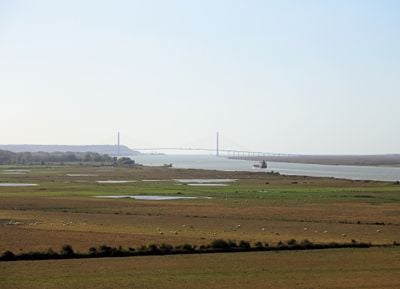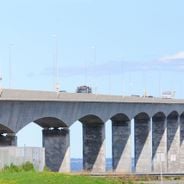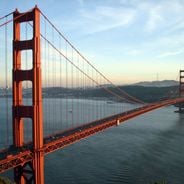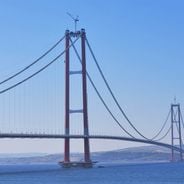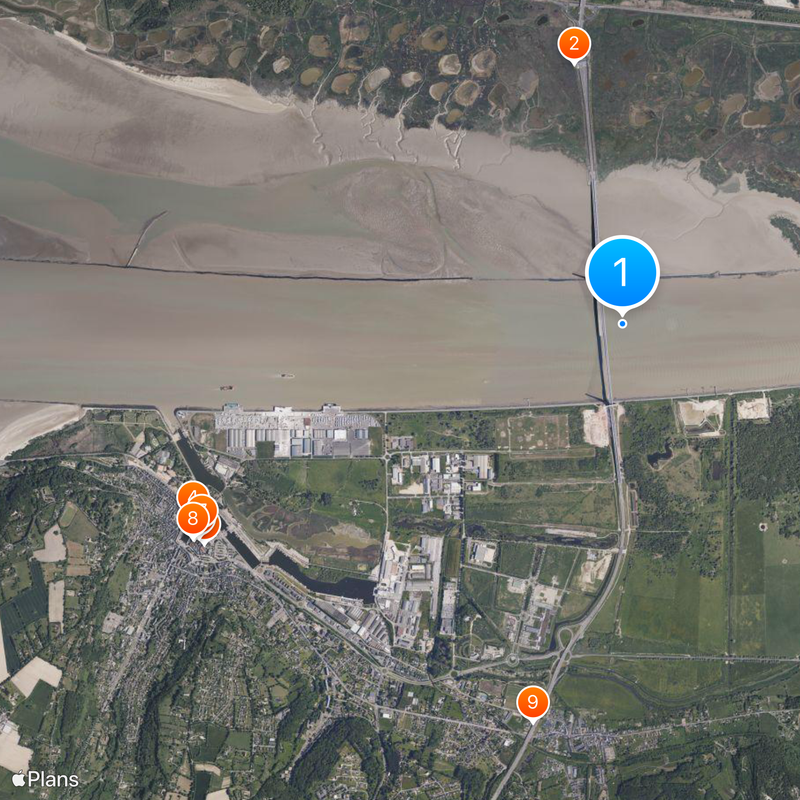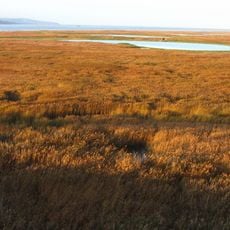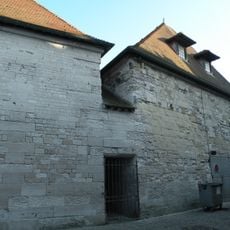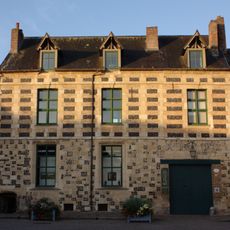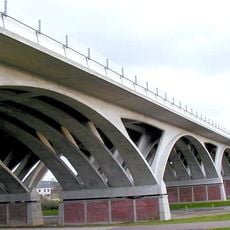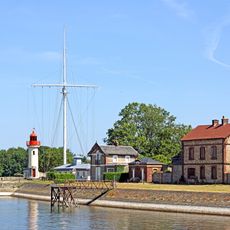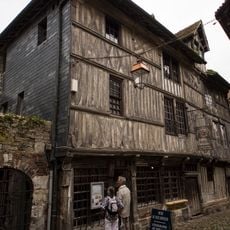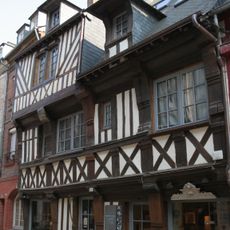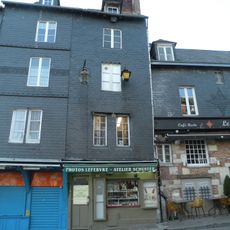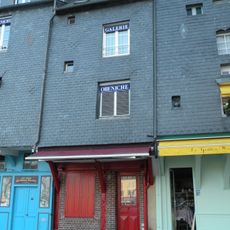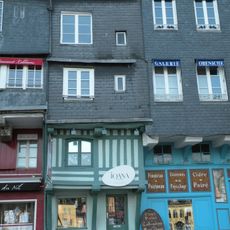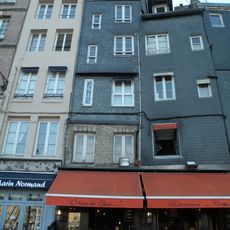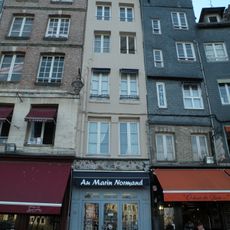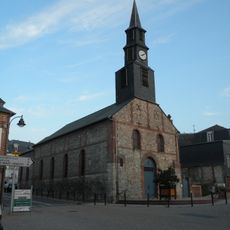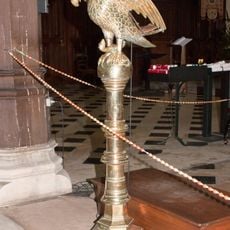Pont de Normandie, Cable-stayed bridge over Seine estuary between Le Havre and Honfleur, France
Pont de Normandie is a cable-stayed bridge over the Seine estuary between Le Havre and Honfleur in France, extending 2,141 meters and built from concrete and steel. The two inverted Y-shaped pylons reach a height of 214 meters and support the 23.6-meter-wide deck through a network of angled cables.
Construction began in 1988 and ended in 1995, when the structure became the longest cable-stayed bridge in the world at that time. It was designed by engineer Michel Virlogeux and opened a new direct route between the industrial city on the north bank and the harbor town on the south bank.
The name refers to the historical region whose borders extend across both banks and which was connected by ferries for centuries. Today commuters and travelers use the crossing daily as a natural link between workplace and home.
The deck offers four lanes for vehicles as well as separate paths for bicycles and pedestrians on both sides. A toll station controls passage, and strong winds can occasionally make the crossing difficult for light vehicles.
The 184 angled cables are coated with wax and polyethylene to protect them from corrosion and weather. This covering allows the structure to withstand wind speeds up to 300 kilometers per hour (186 miles per hour) without the cables breaking or loosening.
The community of curious travelers
AroundUs brings together thousands of curated places, local tips, and hidden gems, enriched daily by 60,000 contributors worldwide.
